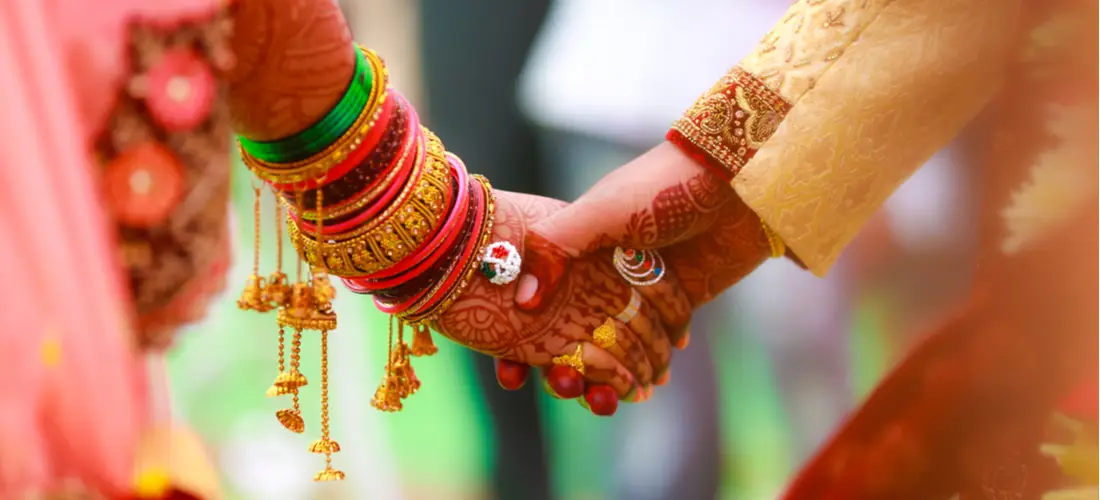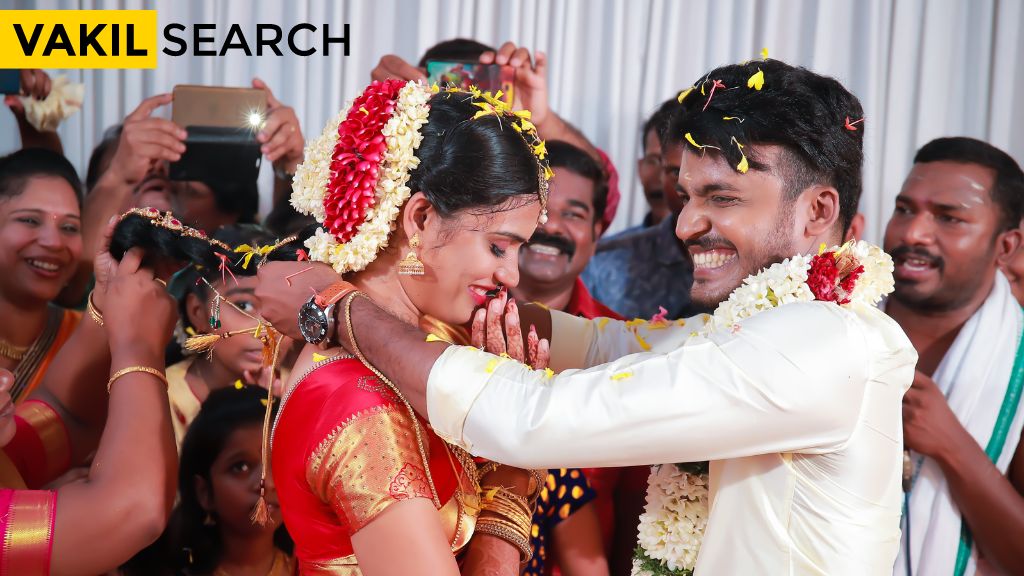Marriage holds immense significance in India, with diverse religious and cultural practices shaping its landscape. Understanding the legal framework governing these practices is crucial for individuals planning to marry, legal professionals, and anyone interested in India's social fabric.
Marriage is a significant life event in India, with legal frameworks guiding its various aspects. Understanding these frameworks is crucial for couples planning to marry, legal professionals, and anyone interested in the legal landscape of marriage in India. This blog aims to provide a comprehensive guide to the two main marriage acts: the Hindu Marriage Act (HMA), 1955 and the Special Marriage Act (SMA), 1954.
Marriage Laws in India: An Introduction
India’s diverse population and religious landscape necessitate a nuanced approach to marriage laws. The HMA caters specifically to Hindus, Sikhs, Buddhists, Jains, and those not belonging to any religion but domiciled in India. The SMA, on the other hand, facilitates interfaith and inter-caste marriages.
The Hindu Marriage Act (HMA)
- Eligibility: Applies to individuals belonging to the aforementioned religions and domiciled in India.
- Key Provisions:
- Prohibits marriages within prohibited degrees of relationships (close relatives).
- Outlines grounds for divorce, including adultery, cruelty, and desertion.
- Provides provisions for alimony and child custody.
- Applicability: While primarily for Hindus, the HMA also applies to Sikhs, Buddhists, Jains, and those not following any religion if they would have otherwise been governed by Hindu law.
The Special Marriage Act (SMA)
- Purpose: Primarily facilitates marriages between individuals of different faiths or castes.
- Registration Process: Requires mandatory registration with a Marriage Officer after submitting a notice and undergoing a waiting period.
- Provisions: Similar to the HMA in terms of grounds for divorce, separation, and financial arrangements.
| Feature | Hindu Marriage Act (HMA) | Special Marriage Act (SMA) |
|---|---|---|
| Eligibility | Hindus, Sikhs, Buddhists, Jains, and individuals not following any religion (domiciled in India) | Individuals of any religion or caste |
| Registration | Optional | Mandatory |
| Applicability | Primarily Hindus, others based on prior adherence to Hindu law | All individuals, regardless of religion or caste |
| Marriage Ceremony | Must be conducted following Hindu customs and rituals | Can be conducted in any manner agreed upon by the parties, without any religious customs or rituals |
| Marriage Voidability | Can be voidable on various grounds specified in the Act | Can be voidable if not solemnized according to the provisions of the Act or any other personal laws |
| Divorce | Governed by Hindu Marriage Act, with specific grounds and procedures | Governed by Special Marriage Act, with provisions for divorce by mutual consent or on specified grounds |
| Maintenance | Provides for maintenance and alimony under specific circumstances | Maintenance and alimony provisions are similar to those under the Indian Divorce Act, 1869 |
| Inheritance | Governs inheritance rights and succession for Hindus, Sikhs, Buddhists, and Jains | Inheritance rights and succession governed by personal laws of individuals, not affected by the SMA |
| Legal Procedures | Follows the legal procedures outlined in the Hindu Marriage Act | Legal procedures for marriage, divorce, and related matters specified in the Special Marriage Act |
Divorce and Separation Provisions
The Hindu Marriage Act (HMA) and the Special Marriage Act (SMA) govern divorce and separation for marriages solemnized under their respective provisions in India. Here’s a breakdown of their key similarities and differences:
Grounds for Divorce
Both HMA (Section 13) and SMA (Section 27) prescribe specific grounds for obtaining a divorce. These grounds include:
- Adultery
- Cruelty
- Desertion for a continuous period of at least three years
- Conversion by one spouse to another religion
- Mental disorder of a kind and to an extent that the other spouse cannot reasonably be expected to cohabit with the patient
- Leprosy
- Venereal disease in a communicable form
- Renunciation of the world by one spouse
- Presumption of death of one spouse based on seven years of continuous absence from the other spouse
Grounds for Judicial Separation
Both HMA (Section 10) and SMA (Section 23) allow for judicial separation on the same grounds mentioned above for divorce. However, this option allows the couple to remain legally married while living separately.
Mutual Consent Divorce
Both HMA (Section 13B) and SMA (Section 28) permit divorce by mutual consent if:
- The spouses have been living separately for one year or more or have been living together but haven’t had any marital relations for one year or more.
- They have mutually agreed that they cannot live together as husband and wife.
- There is no chance of reconciliation.
Differences
- Application: HMA is applicable to Hindus, Buddhists, Jains, and Sikhs, while SMA applies to inter-religious and inter-caste marriages.
- Waiting Period: While the waiting period for mutual consent divorce under both acts is one year, the recent High Court judgment has declared this mandatory wait period under Section 13B HMA unconstitutional, potentially allowing for quicker divorces under exceptional circumstances.
Recent Developments and Court Rulings in Indian Marriage Laws
While the core framework of the Hindu Marriage Act (HMA) and Special Marriage Act (SMA) remains largely unchanged, recent developments and court rulings have shaped their interpretation and application:
Same-Sex Marriage
- 2023: The Supreme Court of India, in Supriyo Chakraborty & Ors. v. K. Veerakumar, while not legalizing same-sex marriage, acknowledged the right to equality and non-discrimination on the basis of sexual orientation. This judgment opens doors for future legal challenges and potential legislative changes to recognize same-sex unions.
Prohibition of Marriage Between “Sapindas” (Close Relatives)
- 2024: The Delhi High Court, in Manju Devi & Ors. v. State & Ors., upheld the prohibition of marriage between “Sapindas” (close family relations) under the HMA. While acknowledging individual choice, the court emphasized the potential for legitimizing incestuous relationships if unrestricted marriages between close relatives were allowed.
Cruelty as Grounds for Divorce
- 2024: The Madras High Court, in S. Soundarya v. S. Karthikeyan, ruled that a husband’s refusal to include his wife and children in his service register and denying them financial assistance constitutes “cruelty” and can be grounds for divorce under the HMA. This judgment emphasizes the evolving interpretation of “cruelty” in the context of marriage.
Detailed Enquiry Not Required to Waive Cooling-Off Period
- 2024: The Punjab and Haryana High Court, in Mandeep Kaur v. Harpreet Singh, clarified that a detailed inquiry akin to a trial is not required to waive the mandatory cooling-off period for mutual consent divorce under the HMA. This ruling streamlines the process for couples seeking amicable divorce through mutual consent.
Investigation into Unrecognized Marriages
- 2024: The Punjab and Haryana High Court, in State of Punjab v. Raj Kumar & Ors., ordered a probe into Arya Samaj Mandir (a religious organization) not recognized under the HMA, solemnizing marriages. This case highlights the importance of legal recognition and compliance with relevant acts when conducting marriage ceremonies.
1. What is the minimum age for marriage under Indian law?
The minimum age for marriage in India is 21 years for men and 18 years for women. This applies under both the Hindu Marriage Act (HMA) and the Special Marriage Act (SMA).
2. Can interfaith couples marry without conversion in India?
Yes, interfaith couples can marry without conversion in India under the Special Marriage Act (SMA). This act allows individuals of any religion or caste to marry, regardless of their faith.
3. Can a Hindu marry a non-Hindu in India?
Yes, a Hindu can marry a non-Hindu in India under the Special Marriage Act (SMA). The HMA primarily applies to individuals following Hinduism, Sikhism, Buddhism, Jainism, and those not belonging to any religion but domiciled in India.
4.What is termed as a valid marriage in India?
A marriage is considered valid in India if it is registered under either the Hindu Marriage Act (HMA) or the Special Marriage Act (SMA), fulfilling all the necessary conditions and legal requirements.










